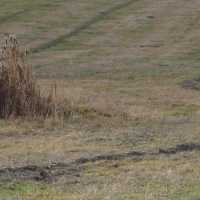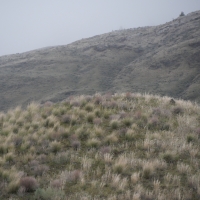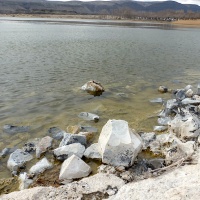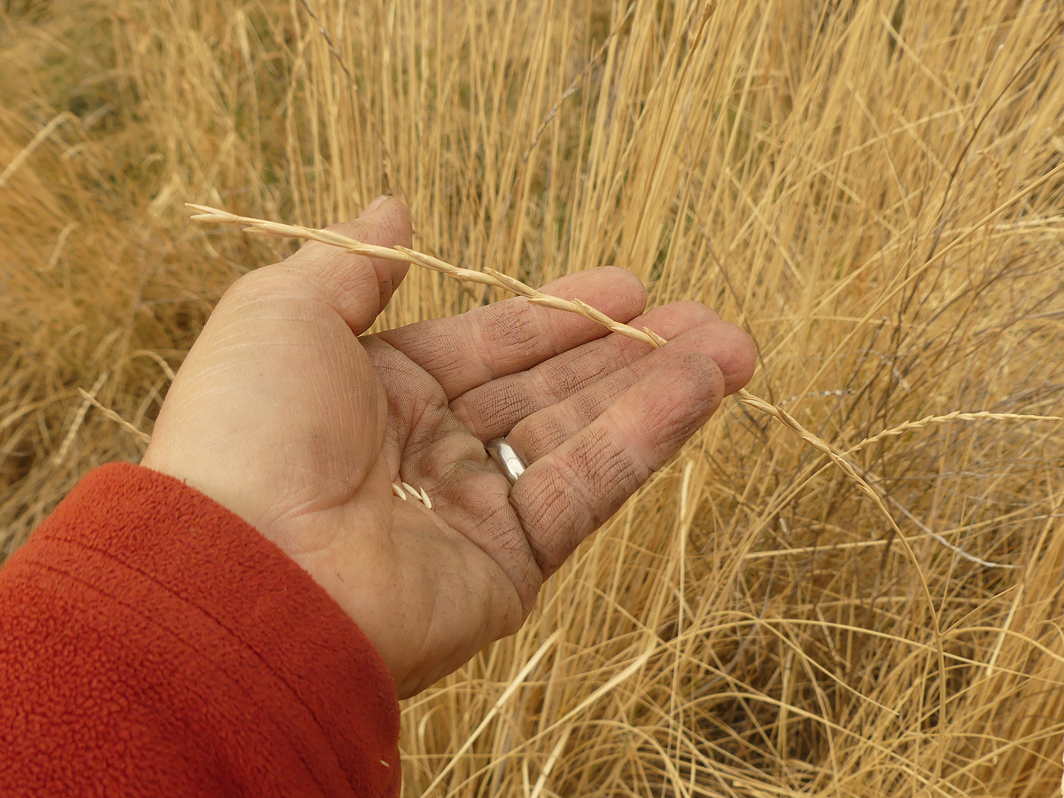Darwin is English. Goethe is German. There have been wars over this. Pity. Let me explain. First, an image of multiplicity from the former East Germany:
Goethe’s Botanical Garden in Jena, Germany
Darwin travelled the globe. Goethe, like most Germans, brought the world to himself. That is a profound difference, which led to profoundly different conceptions of science.
Darwin advocated a theory of evolution which has no guiding principle other than expediency and almost accidental incremental change. That’s the world which we all pretty much live in today. It is great science, that has had a powerful effect on the way in which humans in so-called scientific societies see the world. Here’s Darwin as a young man.
Charles Darwin, Looking Dapper
He hadn’t figured out evolution yet.
Goethe advocated a theory of evolution in which the characteristics of a species could be seen in the totality of its variations; it wasn’t a series of evolutionary changes that were being observed but a series of unfoldings out of an original, unified potential. Goethe was after that moment of potential. Here’s Goethe as a young man:
The Young Goethe, Looking Dapper
He hadn’t written Faust yet.
I’m not interested in knocking such a great scientist as Darwin off of his pedestal or in placing such a neglected one as Goethe on one. The point I’d like to make today is that Darwin’s theory of evolution is as English as Goethe’s is German. For theories that purport to represent independent, neutral science and dispassionate observations of the world, that should be a warning bell. Now, when I say that Darwin is English, I don’t mean that he’s like bubble and squeak or bangers and mash. I mean that he carries on the English philosophical tradition, which is born from English history and language. Century after century of invasion has its effect on a language and a culture: first the Britons, then the Romans, then no Romans, then the Anglo Saxons, then the Norse, then the Anglo Saxons, then the Newer Norse, then the Anglo-Normans, and at the end of it all the British had learned a couple things:
1. Change and adapt, because you’re going to be raped or murdered anyway.
2. Fight by any means possible, usually by manipulating the gap between two sets of conceptions. For example, here are the ruins of Castell-y-Bere in Wales. The English knocked it to bits in 1283. Here’s the main Welsh defense machinery for the castle.
Here’s the main Welsh defense machinery for the castle.
The Castell-y-Bere Dragon
This defensive position was chosen at the confluence of two valleys, because of this magical talisman, the Welsh dragon itself. No English invaders could touch the place, with powerful magic like this at its heart, right?
Wrong. The English crept up a natural cleft in the rock outside the lower wall of the castle, and when they were unstoppably close just jumped over the low wall there and the show was over. That’s very English. One takes advantage of weaknesses and supposed strengths by being somewhere else. Usually, this means ignoring magic or accepted decorum. To such an imagination, nothing is sacred; flow is everything. It’s the principle by which one puts spin, or “English”, on a ball, or by which a language can be used to mean anything, depending on circumstances, and depending on whether one draws from its Anglo Saxon, Old Norse, Norwegian, or Anglo-Norman vocabularies. They have little in common. It’s the totality, a parliament of languages, that is English. More specifically, it is the form of argument that switches from one to the other when necessary or expedient, and remains aloof from them all, that is truly English. And truly Darwinian.
Will Mow Lawn 4 Beer
A British Columbian demonstrates his English heritage. Note that this mower has not moved in 3 years.
Unlike the English, however, the Germans were never a people, at least not before the figure of Goethe was seized upon to try to make them into one. They were scattered around a couple thousand principalities, all with allegiance to not Germany but the Holy Roman Empire. To say one was “German” was nearly meaningless. Germany was the Church. Its rulers were a mix of all the royal houses of Europe, and it mattered not a whit what language one spoke at home. Whereas the English maintained stability by adapting to invasion and learning the language of the invader so well that they became the invader, without dropping their previous languages, the Germans remained an ethnic curiosity within a stable, non-ethnic system that lasted for a thousand years. But then, they converted to Christianity en masse. They saw no break between it and their pre-Christian beliefs.
Goethe as an Early Middle-Aged Traveller in Italy
To learn the world, the English conquered it and then took on its forms, for the sake of expedience. The Germans remade themselves as the world, because it just wasn’t that important. They trusted in their ability to absorb whatever came their way. To them, eternity, however, was important, especially as it manifested itself in the present and in human body and presence. As the experience of the Welsh at Castell-y-Bere showed, the English, the true intellectuals in this tale, slaughtered that dragon long before.
And so, out of these two great scientific figures we got two conceptions of science, one based on filling ecological niches by a random sense of progress and opportunity, and one filling them by an ordered sense of growth out of the infinite potential of a first principle or a presence. The former, Darwin’s, is the bulk of contemporary science. The latter gave us the science of phenomena and the philosophies of Nietzsche and Heidegger. Darwin’s version has given us English democracy, with its trust in the wisdom of random process. Goethe’s version gave us German democracy, with its trust in the wisdom of common foundations and carefully guided responses. I’m not saying one is better than the other. I’m only pointing out how different they are, and how they are rooted in the experiences of two different peoples. I do have a secondary point, though, which is that this English system has given us Canadian land use policy that accords wilderness status to the Earth (even though the earth which English settlers “discovered” was very much a controlled, social space, in a fashion closer to that of the Germans than anything), and the trust that no matter what random process works its way through a society built around furthering individual desire and randomness the energy of wildness within the earth will continue to thrive and provide energy for society and individuals. The contemporary result looks like this:
Invasive Cheat Grass Hell
There should be 100 species in this grassland, not one that is destructive of water flows and is turning bountiful landscapes into near deserts.
It also looks like this:
Canadian Vineyard Farmyard, Vernon, British Columbia
Note the Hell of Cheatgrass in the Foreground. This is the way you colonize Mars or the Moon. It is not the way you live on the earth and from it. It is the expression of a very specific form of individuality.
According to the principles of random evolution, the kind of desertification and squandering of the socially-given right to own land demonstrated in the image above is a natural consequence of growth and progress, as well as part of the natural change of the world. Two hundred years ago, Goethe showed us that it does not have to be this way. The point is not whether Goethe or Darwin were right. The point is that they were both right and that neither are neutral sciences. They are social constructs, which have a history and a projected path into the future, which we have the ability to change for the better (as with all social constructs), and, boy, do we ever need to, fast. In Darwinian science, the images below show three species filling the same ecological niche…
Beautiful, isn’t it! In Goethean science, on the other hand, they show one energy manifesting itself in multiplicity. Also beautiful. Personally, because of an imbalance of random human pressure on the earth despite the impoverishment resulting from it I think that right now we need a bit less English individualism and a bit more of Goethean multiplicity. For the love of the Earth.
Categories: Ethics, Grasslands, invasive species, Land, Science























